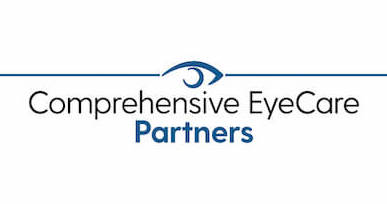Shephard Eye Center Offers Financing Through CareCredit
Need help financing your healthcare treatments or procedures? CareCredit® may be the answer for you. CareCredit® is a personal line of credit exclusively for healthcare treatments and procedures. The advantage of using a CareCredit® account versus your normal credit card is that it is used exclusively for healthcare services. Simply pay your minimum monthly payment and pay off the entire balance by the end of your promotional period. If you need more time to pay for your procedure, there are even options available to take advantage of an extended payment plan with low, fixed interest rates.
You can download an application or apply online or via the telephone. Receive an answer immediately. You choose your repayment time of 6 months, 12 months, etc. Call our office today and find out which CareCredit® plans we offer, how they can fit with your needs and get the procedure or treatments you need today!
Special Interest Payment Plans
- 12-month plan options
- Low minimum monthly payments
Extended Payment Plans
- 24, 36 & 48 month plan options
- For procedure fees from $1,000 and up
- Monthly payments as low as $25 for a $1,000 fee balance
What is a Flexible Spending Account (FSA)?
Known by many different names, (flex plan, reimbursement account, Flex 125, Tax Saving Plan, Medical Spending Account, a Section 125 or Cafeteria Plan). A flexible spending account is a benefit sponsored by your employer which allows you to pay for eligible medical expenses on a pre-tax basis. If you expect to have medical expenses that will not be reimbursed by regular health insurance coverage, employees can now plan ahead to take advantage of this tax-saving benefit offered by many employers today.
What are the benefits of an FSA?
The FSA benefit saves money by lowering your income taxes. The contributions you make to a Flexible Spending Account are deducted from your pay BEFORE your Social Security, Federal, or State taxes are calculated. The contributions to your FSA are never reported to the IRS resulting in a decrease of your taxable income and an increase to your spendable income. You can now save hundreds or even thousands of dollars a year.
How does it work?
At the beginning of the plan year, your employer asks you how much money you want to contribute for the year. Though there are limits, the plan your employer offers may very likely be enough for you to pay for an elective procedure, such as Lasik. Unless you have a qualified “family status change,” such as marriage, birth, divorce, or loss of a spouse’s insurance coverage, most people have only one opportunity a year to enroll. The amount you designate for the year is taken out of your paycheck in equal installments each pay period and placed in a special account by your employer. As you incur medical expenses that are not fully covered by your insurance, you simply submit a copy of the provider’s invoice or Explanation of Benefits, along with proof of payment to the plan administrator, who will issue you a reimbursement check.
What expenses are eligible?
Any expense that is considered a deductible medical expense by the IRS and is not reimbursed through your insurance can be reimbursed through the FSA. These expenses include most elective surgery, deductibles, prescription drug co-payments, laser vision correction, and eyeglasses. Unfortunately, not all employers participate in FSA programs. Please check with your employer’s Human Resources or Benefits Department to see if your employer provides this benefit.
Are there any drawbacks to the FSA?
With the flexible spending account, if you contribute more money than you need for the year, by law, you lose it. At Shepherd Eye Center, we will give you the exact cost of your procedure so that you can plan accordingly for your FSA contributions.
Do you accept Medicaid?
The Shepherd Eye Center accepts Medicaid.


